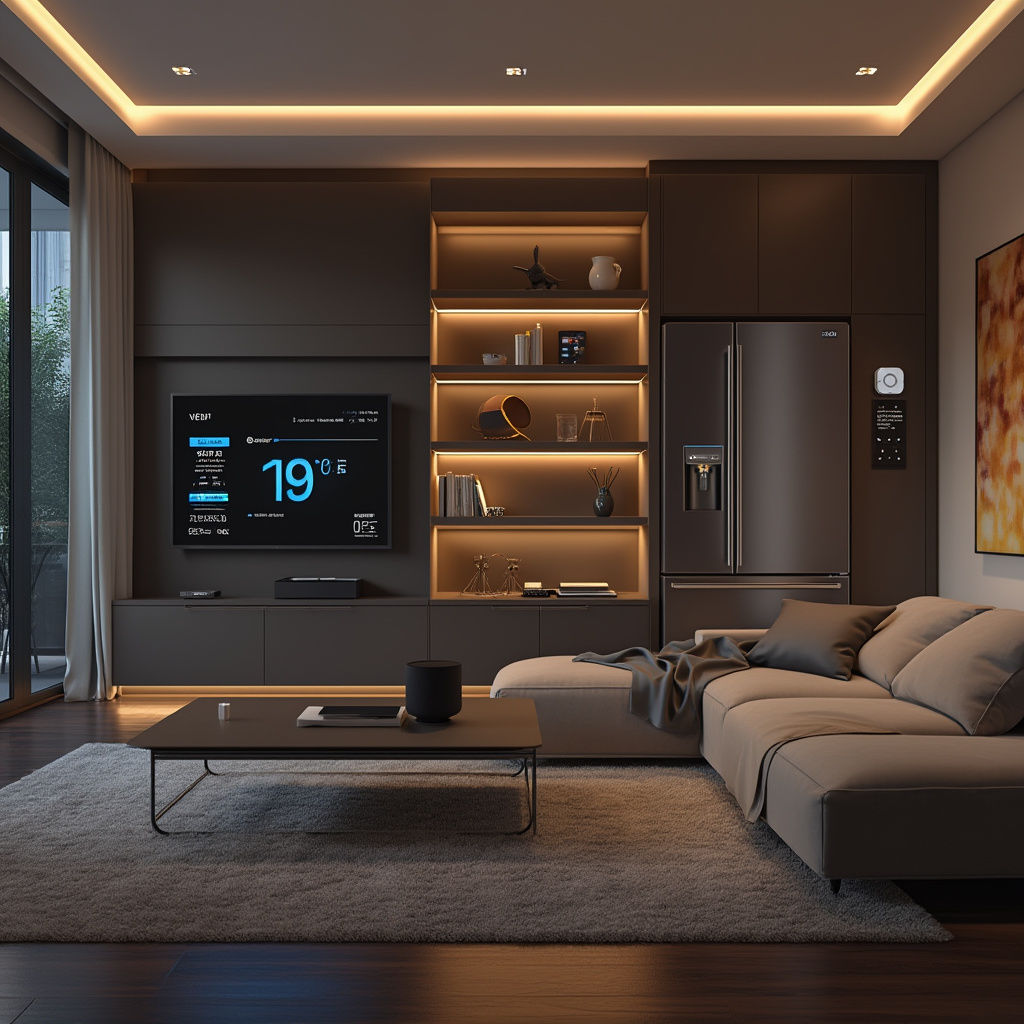
Smart home technology has become increasingly prevalent, transforming the way we interact with our living spaces. The Verge provides extensive coverage of this rapidly evolving field, offering news, reviews, and guides on various smart home gadgets and systems. Smart home technology encompasses several main categories: The Verge regularly reports on new product launches, software updates, and industry trends. Some recent developments include: The Verge provides in-depth reviews of smart home products, helping consumers make informed decisions. These reviews cover aspects such as ease of installation, user interface, performance, and integration with other smart home ecosystems. For those new to smart home technology or looking to expand their setup, The Verge offers practical guides on topics like: As smart home devices collect and process personal data, The Verge also covers important privacy and security issues, including: The Verge explores emerging technologies and trends that may shape the future of smart homes, such as: By covering these diverse aspects of smart home technology, The Verge provides a comprehensive resource for anyone interested in creating a more connected, efficient, and comfortable living space.Smart Home Technology: A Comprehensive Guide
Key Smart Home Categories
Latest Trends and Developments
Reviews and Recommendations
Guides and How-Tos
Privacy and Security Concerns
Future of Smart Homes
“`

Benefits of Smart Home Technology
Smart home technology offers a multitude of benefits that enhance the convenience, comfort, and efficiency of living spaces. These advantages include:
- Convenience: Voice control and remote access allow users to manage multiple devices seamlessly.
- Energy Efficiency: Smart thermostats and lighting systems optimize energy usage, reducing utility bills.
- Enhanced Security: Smart security cameras and doorbells provide real-time monitoring and alerts.
- Customization: Personalized settings for lighting, temperature, and entertainment systems create a tailored living experience.
- Increased Property Value: Smart home features can boost a property’s appeal and value.
Challenges and Limitations
Despite its advantages, smart home technology presents several challenges:
- Compatibility Issues: Ensuring all devices work together seamlessly can be difficult.
- High Costs: Initial investment in smart home devices can be expensive.
- Privacy Concerns: The collection and storage of personal data raise privacy issues.
- Technical Complexity: Setting up and maintaining a smart home system can be complex for non-tech-savvy users.
- Dependence on Internet: Most smart devices require a stable internet connection to function properly.
Industry Leaders in Smart Home Technology
Several companies are at the forefront of smart home innovation, including:
- Amazon: With its Alexa ecosystem and Ring security products.
- Google: Offering Google Home devices and Nest products.
- Apple: Integrating HomeKit for iOS users.
- Samsung: Providing SmartThings hub and compatible devices.
- Other Players: Brands like Philips Hue, August, and Honeywell also contribute significantly.
Real-World Applications Beyond Residential Use
Smart home technology extends beyond homes, impacting:
- Apartment Complexes: Smart locks and access systems enhance security and convenience for tenants.
- Healthcare: Monitoring systems for elderly care and remote patient monitoring.
- Hotels and Hospitality: Smart systems for temperature, lighting, and entertainment.
- Workspaces: Smart lighting and energy management in offices.
Environmental Impact
Smart home technology plays a role in environmental sustainability by:
- Reducing Energy Consumption: Through smart thermostats and lighting.
- Optimizing Resource Use: Automating systems to minimize waste.
- Promoting Renewable Energy: Integrating solar panels and energy storage systems.
- Encouraging Eco-Friendly Habits: Providing insights to help users adopt greener lifestyles.
Conclusion
Smart home technology has revolutionized the way we live, offering unparalleled convenience, efficiency, and customization. From voice-controlled speakers to energy-saving thermostats, these innovations enhance daily life while providing long-term benefits like increased property value and environmental sustainability. While challenges such as compatibility and privacy concerns exist, the advantages of smart home technology far outweigh the limitations. As the industry continues to evolve with advancements like Matter and AI integration, smart homes will become even more intuitive and accessible. Whether you’re a tech enthusiast or a homeowner looking to upgrade, smart home technology is an investment in a smarter, more comfortable future.
Frequently Asked Questions (FAQ)
What is smart home technology?
Smart home technology refers to devices and systems that connect and automate various aspects of a home, such as lighting, security, and appliances, to enhance convenience, efficiency, and comfort.
How do I set up a smart home system?
Setting up a smart home system involves choosing a central hub or ecosystem (e.g., Alexa, Google Home), connecting compatible devices, and configuring settings through the associated app or voice commands.
What are the benefits of smart home technology?
The benefits include convenience, energy efficiency, enhanced security, customization, and increased property value. Smart home devices also offer remote control and automation capabilities.
Is smart home technology secure?
While smart home devices can pose privacy and security risks, taking measures like using strong passwords, enabling two-factor authentication, and regularly updating software can help secure your system.
What are the best smart home devices for beginners?
Start with essential devices like a smart speaker (e.g., Amazon Echo or Google Nest), smart lighting (e.g., Philips Hue), or a smart thermostat (e.g., Nest). These are easy to install and provide immediate benefits.
Can smart home devices work with each other?
Compatibility varies, but standards like Matter aim to improve interoperability between devices from different brands. Always check compatibility before purchasing.
How can I save energy with smart home technology?
Use smart thermostats to optimize heating and cooling, install smart lighting with energy-efficient bulbs, and utilize energy-monitoring tools to reduce waste and lower utility bills.
What is the future of smart home technology?
The future includes advancements like improved AI integration, better device interoperability, and expanded applications in areas like healthcare and sustainability. Expect smarter, more intuitive systems as technology evolves.

 Ultimate Smart Home News, Reviews & Must-Have Gadgets for 2024
Ultimate Smart Home News, Reviews & Must-Have Gadgets for 2024
0 Comment